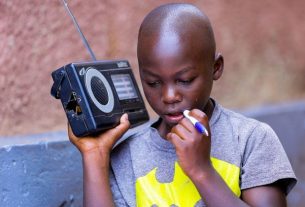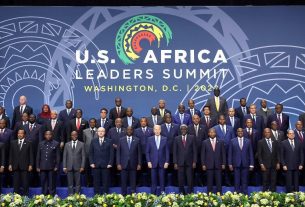Burundi Votes Amid Crippled Opposition
Burundi held parliamentary elections on Thursday under heavily restricted political conditions. The ruling CNDD–FDD party, in power since 2005, faced little opposition after its main rival, the National Freedom Council (CNL), was effectively barred from participating. The CNL, which claimed electoral fraud in 2020, was suspended by the government last year, and its leader, Agathon Rwasa, was ousted while abroad in what he described as a politically motivated move. New regulations have since prevented Rwasa and his allies from joining other parties or running as independents. While President Évariste Ndayishimiye is seen as less authoritarian than his predecessor, Pierre Nkurunziza, human rights concerns remain high in the country.
Hamdok: Military Gains Won’t End Sudan’s War
Former Sudanese Prime Minister Abdalla Hamdok warned that recent military advances in Sudan’s civil war are unlikely to bring lasting peace. Speaking from exile in a rare interview with the Associated Press, Hamdok criticized efforts to rebuild Khartoum while conflict rages elsewhere as “absolutely ridiculous.” He called for a genuine ceasefire and a comprehensive democratic process that addresses deep-rooted ethnic and regional inequalities. Hamdok, who led Sudan’s transitional government from 2019 to 2022, said trusting the military to deliver democracy is “a false pretense.”
Sudan Media Forum Rejects New Press Law Proposals
The Sudan Media Forum has raised alarms over proposed amendments to Sudan’s 2009 Press and Publications Act, warning they would further erode press freedom. The group criticized recent recommendations from a workshop in Port Sudan, saying they risk transforming the media into a tool of state control. The Forum called instead for an independent media regulatory body composed of civil society members from journalism, legal, and academic sectors.
DR Congo Bans Media Coverage of Former President Kabila
The Democratic Republic of Congo has imposed a ban on media reporting about former President Joseph Kabila and his party. The move follows Kabila’s return to the country amid tensions with President Félix Tshisekedi’s government, which accuses him of treason and alleged ties to the M23 rebel group—charges he denies. The ban, enforced by the national media regulator CSAC, has drawn sharp criticism from civil society groups, with prominent human rights advocate Jean-Claude Katende calling it an “abuse of power.”
Detained Chad Opposition Leader Freed After Eight Months
Robert Gam, Secretary-General of Chad’s Socialist Party Without Borders (PSF), has been released after being held incommunicado for eight months. His detention followed the February killing of PSF leader Yaya Dillo Djerou, a cousin and rival of President Mahamat Idriss Déby. Djerou was shot dead by the presidential guard in an assault on party headquarters. Rights groups condemned Gam’s detention as politically motivated, with opposition figures continuing to face persecution, including recent charges against former Prime Minister Succes Masra.
UN Petition Targets Tanzania Over Opposition Leader’s Detention
International legal counsel for Tanzanian opposition leader Tundu Lissu has filed a petition with the UN Working Group on Arbitrary Detention, accusing the government of using fabricated treason charges to suppress political dissent. Lawyer Bob Amsterdam argues domestic legal remedies are ineffective due to lack of judicial independence. The petition seeks international pressure on President Samia Suluhu Hassan’s administration, which has faced mounting criticism over repression of opposition voices.
Kenyan Forces Kill Al-Shabaab Militants Near Somalia Border
Kenya’s elite Special Operations Group (SOG) killed at least four Al-Shabaab militants during a counterterrorism operation in Garissa County, near the Somali border. The militants were first detected by surveillance drones before being tracked and engaged. Kenya has battled the extremist group for nearly two decades, and recent military upgrades, including new forward operating bases, have improved response capabilities in the restive Northern Frontier Districts.
Nigeria’s Defence Chief Proposes Border Fence to Fight Insecurity
Nigeria’s Chief of Defence Staff, General Christopher Musa, has proposed fencing the country’s borders with its four neighbors—Niger, Cameroon, Chad, and Benin—as a measure to combat cross-border militancy and insecurity. Speaking at a security conference in Abuja, he cited the examples of Pakistan and Saudi Arabia. This is the first time such a large-scale border barrier has been publicly suggested by a top Nigerian military official.
Nigerian Drone Startup Wins Security Deal Over Israeli Competitor
Nigerian drone manufacturer Terra Industries has secured a $1.2 million contract to supply surveillance technology for two hydropower plants, beating out an Israeli consortium. The Abuja-based firm, founded by 22-year-old Nathan Nwachuku, will provide 12 drones and 35 surveillance towers. Terra Industries has rapidly grown in the region, with clients in Nigeria, Ghana, and Kenya across sectors from mining to agriculture.
Mass Graves Found in Libya, UN Confirms Torture Fears
UN human rights chief Volker Türk has confirmed the discovery of dozens of bodies in official and unofficial detention sites in Libya, calling the findings evidence of torture and extrajudicial killings. The suspected mass graves are located at facilities operated by the Stabilization Support Apparatus (SSA), an armed group with ties to the Tripoli-based government. Türk urged immediate forensic investigations to ensure accountability.
Algeria Expels 16,000 Migrants to Niger in Two Months
Algeria has expelled over 16,000 irregular African migrants to Niger since April, accounting for more than half of last year’s total expulsions. Many were reportedly deported under harsh conditions, according to local NGO Alarm Phone Sahara. Niger plans to repatriate 4,000 migrants by July in coordination with the UN’s International Organization for Migration to avert a humanitarian crisis in the north.
Senegal’s Gold Boom Fuels Sex Trafficking Surge
A gold rush in Senegal’s Kédougou region has triggered a spike in human trafficking, particularly involving Nigerian women forced into prostitution. The boom has drawn thousands of artisanal miners and spawned extensive transnational criminal networks. Rights groups and local authorities are struggling to keep pace with the growing exploitation.
Nigeria Calls for Private Sector-Driven ECOWAS Integration
Nigeria’s Foreign Minister Yusuf Tuggar has called for greater private sector participation in ECOWAS economic projects. Speaking at a roundtable in Lagos ahead of the West Africa Economic Summit, Tuggar highlighted initiatives like the Abidjan–Lagos highway and the West African Power Pool as key opportunities for investment. He urged businesses to help address trade barriers and regulatory challenges to boost competitiveness and economic integration across the region.



